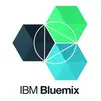
The IBM AS400 training course provides in-depth knowledge of the AS400 system, focusing on its architecture, operations, and programming. Participants will learn how to manage AS400 servers, execute commands, and develop applications using RPG IV and CL programming. The course includes hands-on labs to enhance practical skills and is ideal for IT professionals seeking to enhance their expertise in IBM iSeries.
IBM AS400 Interview Questions - For Intermediate
1. What is IBM AS/400?
IBM AS/400, now known as IBM System, is a family of midrange computers designed for small and medium-sized businesses. It combines robust hardware with integrated software and middleware utilities.
2. Can you explain the integrated operating system used in AS/400?
The AS/400 runs on IBM's proprietary OS called IBM. It integrates DB2 database management system, a menu-driven interface, support for multiple users, and robust security features.
3. What are some key features of the IBM operating system?
Key features include its database integration, object-based file system, single-level storage, and built-in security. It also supports multiple programming languages and has provisions for web services and modern application development.
4. What is library in AS/400?
In IBM is, a library is a storage location where you can organize and manage different types of objects such as files, programs, and other libraries.
5. What is a subsystem in AS/400?
A subsystem is a runtime environment where jobs are executed. It controls how system resources are allocated to perform work.
6. What are the different types of files in AS/400?
The main types of files are Physical Files (store actual data), Logical Files (provide access paths to physical files), Display Files (define screens), and Printer Files (format data for printing).
7. How does security work on AS/400?
Security on AS/400 is highly integrated and robust, including user authentication, resource authorization, auditing, and encryption capabilities.
8. What is LPAR and why is it useful?
LPAR, or Logical Partitioning, allows a single AS/400 system to run multiple independent operating systems. It enhances resource utilization and provides isolation between different environments.
9. What programming languages can be used with IBM i?
The most commonly used languages are RPG, COBOL, CL (Control Language), and SQL. It also supports Java, C++, and newer languages through PASE (Portable Application Solutions Environment).
10. Explain how you handle error handling in RPG?
Error handling in RPG can be managed using the MONITOR and ON-ERROR commands, which allow the program to continue running and handle exceptions without crashing.
11. What is a job in the context of AS/400?
A job refers to a unit of work that the system handles. It could be a batch job, an interactive job, or a subsystem job.
12. Describe the purpose of a message queue in AS/400.
A message queue is a system object that stores messages sent to users or between programs. It is used for communication and synchronization.
13. What is a spool file?
A spool file is used to hold output data streams, typically for printing, until they can be output on a printer or viewed online.
14. How do you perform backup on AS/400?
Backups on AS/400 can be performed using commands like SAVSYS, SAVLIB, SAVOBJ, and SAVDLO, which handle system, library, object, and document library object backups, respectively.
15. Can you explain journaling on the AS/400?
Journaling in AS/400 is a method of recording changes to database files. It helps in recovery and auditing of data changes.
16. What are user profiles and how are they managed in AS/400?
User profiles define attributes related to user identities, permissions, and environments. They are managed using commands like CRTUSRPRF (Create User Profile), CHGUSRPRF (Change User Profile), and DSPUSRPRF (Display User Profile).
17. What is PDM in AS/400?
PDM, or Programming Development Manager, is a set of tools used for developing, testing, and managing applications on the AS/400.
18. How do you define data integrity in AS/400 systems?
Data integrity in AS/400 systems is ensured through built-in database management features, object-level security, and journaling which safeguard data accuracy and consistency.
19. What is commitment control in AS/400?
Commitment control is a function that allows you to define and process transactions ensuring all database changes are committed if they are successful or rolled back if not.
20. Explain the difference between internal and external storage on the AS/400.
Internal storage refers to the main memory (RAM) of the AS/400 system, while external storage pertains to secondary storage like disk drives.
IBM AS400 Interview Questions - For Advanced
1. What are the key differences between AS400 and modern cloud computing platforms?
AS400, now known as IBM iSeries, is a midrange server designed for small businesses and departments in large enterprises. It is renowned for its robust hardware and integrated operating system, DB2 database, and middleware. Key differences include:
- Architecture: AS400 is an integrated system with tightly coupled hardware and software, while modern cloud platforms use virtualized, scalable resources across distributed data centers.
- Deployment: AS400 typically involves on-premises deployment with dedicated hardware, whereas cloud computing platforms offer on-demand, scalable services accessible over the internet.
- Maintenance: AS400 systems require specialized skills for maintenance and upgrades, while cloud services are maintained by the provider, reducing the need for in-house expertise.
- Cost: Cloud platforms offer pay-as-you-go pricing models, reducing upfront costs. In contrast, AS400 involves significant initial investment in hardware and licenses.
- Flexibility: Cloud platforms support a wide range of programming languages and frameworks, enabling more flexibility and faster development cycles compared to the more rigid, proprietary environment of AS400.
2. How does the AS400 handle database management and what are the benefits?
The AS400 uses the integrated DB2 database, which is designed to provide high performance, scalability, and reliability. Key benefits include:
- Integration: DB2 on AS400 is deeply integrated with the operating system, ensuring seamless operations and efficient resource management.
- Security: AS400 offers robust security features, including object-level security and encryption, protecting sensitive data from unauthorized access.
- Stability: The system is known for its stability and reliability, with built-in redundancy and error correction mechanisms.
- Performance: DB2 on AS400 is optimized for high transaction processing and can handle large volumes of data efficiently.
- Administration: The platform provides tools for easy database administration, backup, and recovery, reducing the overhead on IT staff.
3. Explain the significance of Single-Level Storage in AS400.
Single-Level Storage is a unique architecture feature of AS400 that abstracts physical storage into a single address space, treating all storage as one continuous memory space. The significance includes:
- Simplified Management: It simplifies storage management by eliminating the need to manually manage different storage tiers.
- Efficiency: This architecture allows the system to dynamically allocate and optimize the use of memory and disk storage, improving overall efficiency.
- Data Integrity: Single-Level Storage ensures data integrity by maintaining consistency across storage devices, reducing the risk of data corruption.
- Scalability: It enables seamless scalability, allowing the system to handle increased workloads without complex reconfiguration.
4. What are Activation Groups in AS400 and why are they important?
Activation Groups in AS400 are a mechanism to manage the execution environment of programs. They are important for several reasons:
- Resource Management: Activation Groups help in managing resources such as memory and open files, ensuring efficient use of system resources.
- Isolation: They provide isolation between different applications, preventing one application's failure from affecting others.
- Modularity: Activation Groups support modular programming by allowing independent execution of program modules.
- Performance: By controlling the scope and lifetime of resources, Activation Groups can enhance system performance and stability.
5. Describe the role of Journaling in AS400.
Journaling in AS400 is a mechanism for recording changes to database files and other objects. It plays a crucial role in:
- Data Recovery: Journaling allows for precise recovery of data to a specific point in time, ensuring minimal data loss in case of system failures.
- Audit Trail: It provides an audit trail of all changes, which is essential for compliance with regulatory requirements.
- Performance: Journaling can improve performance by offloading certain processing tasks from the main application.
- Replication: It facilitates data replication by capturing and applying changes to backup or mirrored systems.
6. What is the significance of Object-Oriented Design in AS400?
Object-Oriented Design (OOD) in AS400 enhances the system's flexibility and reusability. Its significance includes:
- Modularity: OOD promotes modular programming, making code easier to maintain and extend.
- Reusability: It enables the reuse of objects and classes across different programs, reducing development time and effort.
- Scalability: Object-oriented systems are inherently more scalable, as new functionalities can be added with minimal impact on existing code.
- Maintainability: OOD improves maintainability by promoting clear and organized code structures, facilitating easier debugging and enhancements.
7. How does the AS400 handle multi-threading and what are its benefits?
AS400 supports multi-threading, allowing multiple threads to execute concurrently within a single program. Benefits include:
- Performance: Multi-threading improves system performance by efficiently utilizing CPU resources and enabling parallel processing.
- Responsiveness: It enhances the responsiveness of applications, especially those with user interfaces, by allowing background tasks to run concurrently with foreground operations.
- Resource Sharing: Multi-threading facilitates resource sharing within the same process, reducing the overhead associated with inter-process communication.
- Scalability: It improves scalability by allowing applications to handle increased workloads through concurrent processing.
8. Explain the concept of Integrated File System (IFS) in AS400.
The Integrated File System (IFS) in AS400 provides a unified file system interface that supports multiple file systems. Its key aspects include:
- Versatility: IFS supports various file systems, including QSYS.LIB, UNIX-like directories, and shared network file systems, offering flexibility in file management.
- Interoperability: It enables interoperability between different file systems and applications, facilitating seamless data exchange.
- Accessibility: IFS provides a consistent API for accessing files, simplifying the development of applications that work with different types of files.
- Security: It offers robust security features, including access control lists (ACLs) and object-level security, ensuring secure file access and management.
9. What are the primary advantages of using RPG (Report Program Generator) in AS400?
RPG is a high-level programming language specifically designed for business applications on AS400. Its primary advantages include:
- Business Logic: RPG is well-suited for implementing complex business logic, making it ideal for developing enterprise applications.
- Performance: It offers high performance and efficient use of system resources, essential for transaction-heavy applications.
- Integration: RPG integrates seamlessly with AS400's database and other system features, providing a cohesive development environment.
- Maintainability: The language's structured approach and readability make it easier to maintain and update legacy applications.
10. How does AS400 support disaster recovery and business continuity?
AS400 provides robust disaster recovery and business continuity solutions through various features and tools, including:
- Backup and Recovery: It offers comprehensive backup and recovery options, including incremental and full backups, ensuring data protection.
- High Availability: Features like clustering and logical replication ensure high availability, minimizing downtime during failures.
- Journaling: Continuous journaling of database changes allows for precise point-in-time recovery, ensuring minimal data loss.
- Geographical Redundancy: Support for geographically dispersed systems enables organizations to maintain operations during site-specific disasters.
Course Schedule
| Nov, 2025 | Weekdays | Mon-Fri | Enquire Now |
| Weekend | Sat-Sun | Enquire Now | |
| Dec, 2025 | Weekdays | Mon-Fri | Enquire Now |
| Weekend | Sat-Sun | Enquire Now |
Related Courses
Related Articles
Related Interview
Related FAQ's
- Instructor-led Live Online Interactive Training
- Project Based Customized Learning
- Fast Track Training Program
- Self-paced learning
- In one-on-one training, you have the flexibility to choose the days, timings, and duration according to your preferences.
- We create a personalized training calendar based on your chosen schedule.
- Complete Live Online Interactive Training of the Course
- After Training Recorded Videos
- Session-wise Learning Material and notes for lifetime
- Practical & Assignments exercises
- Global Course Completion Certificate
- 24x7 after Training Support






 Join our Live Instructor-Led online classes delivered by industry experts
Join our Live Instructor-Led online classes delivered by industry experts